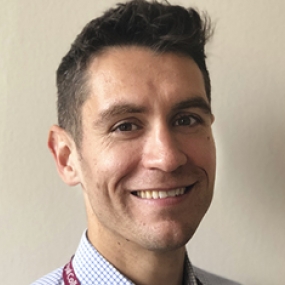Understanding the power and importance of Mercy Ships

Consultant in Anaesthesia and Critical Care
Post completion of my training in anaesthesia and critical care, I had the privilege of working with the Mercy Ships organisation, with whom the College has a long-standing and well established partnership.
Mercy Ships is a faith-based international development organisation that delivers healthcare to some of the poorest countries in the World. Each year, thousands of operations are performed on-board its floating hospital, The Africa Mercy. As well as providing life-changing surgeries, Mercy Ships work closely with local health authorities, providing teaching and training to local doctors and nurses. The ship docks in a different country for 10 months each year and I joined them on their 2018/2019 mission to Guinea. The West African nation of Guinea has a population of 12 million people - with 35 per cent living in extreme poverty. There is only one doctor per 10,000 people there.
During my anaesthetic and intensive care training, I served with Mercy Ships in both Benin and Cameroon. After completion of my training, I devoted an extended period of nine weeks with the Safe Surgery Team and three weeks working as an anaesthetist in the operating theatres on board The Africa Mercy.
The goal of the “Safe Surgery Project” is to support and strengthen the surgical healthcare system from local to government level. Working in partnership with local health authorities, we travelled the length and breadth of Guinea delivering teaching in 16 different hospitals throughout the country.
We travelled as a team of between two and five anaesthetists and two Guinean doctors (who also doubled as translators) led by an experienced theatre nurse. Each hospital participated in an initial five-day educational programme focused on developing the use of the World Health Organisation’s (WHO) surgical safety checklist, theatre teamwork training, safe anaesthesia and basic sterile techniques.
We then re-visited each hospital around three months after their initial programme to assess what impact the changes had made and to deliver further support. Every hospital reported significantly reduced postoperative infection rates, improved teamwork, increased job satisfaction, and a desire to continue their own teaching and training locally.
Teaching in hospitals throughout Guinea was an experience unlike any other. As a team we drove ourselves over 11,000 kilometres, through the jungle region bordering with Sierra Leone to the dusty desert roads in the north.
I naively expected that following 10 years of postgraduate UK medical training I would be able to effortlessly teach local doctors and nurses how to give an anaesthetic. I was astounded at the ability of local staff in the safe delivery of anaesthesia and surgery in extremely challenging conditions. In truth, I was probably the one ill equipped to work in a Guinean operating theatre and learned more from them.
The theatre environment on-board the ship is unique: medical professionals travel from all over the world, and it is not unlikely to be amidst six different nationalities and languages all seamlessly working towards the same goal.
Each year, thousands of operations, in multiple specialties, are performed and provide treatment for patients who otherwise would never receive the care they deserve.
I returned home with a renewed enthusiasm for my work, a greater appreciation for the training I have received, and an incredible amount of respect for the medical professionals regularly working in the developing world. I am extremely thankful for this opportunity and hope to continue serving with the Mercy Ships for years to come. Thank you to my two experienced College mentors Dr Michelle White and Dr Michael McBrien – your support and advice before and during the trip was invaluable.
Dr Scott McNeill
